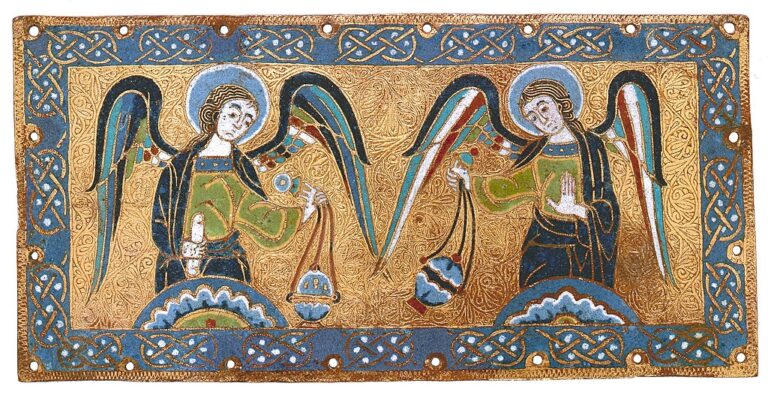
Little Creatures
The teacher who looked ancient
to her circle of first graders
leaned forward and explained
that the typical lightning bug
was simply the twinkle
in an angel’s eye, the only part
of our guardians God allowed us
to see, and in the small
classroom where we learned
the sound of each vowel
and a vocabulary of simple
words so we could read
the unassuming adventures
of Dick and Jane who ran
with Spot while their little
sister Judy sat with their cat,
the butter-colored Puff,
all this seemed right and good.
Later in the season of the lawn
sprinkler and popsicles,
we’d wait in the dark
for the chants of crickets
and cicadas to pause and even
when the moon was white
as milk and as disclike
as a sugar cookie, we looked
for those little creatures
that glittered with irresistible
flickers of green and gold light.
Yet sometimes we just sat
and mulled over how many
guardian angels visited here
and if they all belonged to us
or if some were on vacation
while others stopped by
as part-time bugs.
Walking Away
Languedoc
The gate is open, the pebbled path
between weathered stone walls, old,
and Mother is walking away.
In the middle distance,
a chiseled-brick archway
over a lane that’s long been dusty
as no wind has come along
lively enough to sweep back
and forth between the aged houses.
Mother’s a tourist in this region
where, if a person said Yes
in the vernacular of troubadours
and radically Christian Cathars
rather than in the Parisian patois
used by invading northern nobility,
she might’ve been marked for death,
along with entire families and towns,
slain by bonfire or the sword.
Mother’s been able to say Yes
in a handful of languages.
Yes, to a marriage, to children
and to a dynamic accumulation
of days and, lately, Yes
to whatever waits ahead.
The breathless blue sky
above the down-sloping village’s
hillside and its castle in ruins
are nowhere in view. Only the walls,
the open gate and the path on which
Mother is walking away.
The Last Word
after Jack Gilbert
When the angels came, he was working
on the Sunday crossword puzzle.
He’d filled in “apple” for forbidden fruit
and, down from the first letter,
penciled in “agape” in the squares,
then stopped, caught more off-guard
by the incongruous intersection
of greed and ungrudging goodwill
than by the two sinewy, winged figures
who looked like extras in a Zeffirelli film.
All he asked was could he continue
the puzzle. Both angels shrugged
so he took up his pencil again.
The two drew near, leaned over him,
close enough for him to discern
the faint scent of his favorite flowers,
lilies of the valley, those delicate bells
that never ring. Hemingway, one said,
pointing toward a five-letter space.
Donne, the other countered dryly.
“But I have so much more to finish,”
the man mewled, showing them
a baffling expanse of vacant spaces.
By the time he put down the final
letter, the sky had given its last
rosy show of the day and the man
said he would slip on his sweater.
When the angels led him toward
a brightness, he tried to let go,
arguing, “I don’t know if I gave
the right answers.” No one does
was the angels’ reply.

Lenny Lianne was born in Washington, DC, and spent over forty years in the “A” suburbs of Northern Virginia: Arlington, Annandale, and Alexandria. She holds an MFA in Creative Writing (Poetry) from George Mason University and her poems have appeared in regional, national and international journals and anthologies. She’s taught the writing of persona and ekphrastic poems as well as the ode in workshops on both coasts. One of her poems was chosen by Dorianne Laux as a finalist for the 2021 Steve Kowit Poetry Prize. Lenny lives in Arizona with her husband and their dog.
Image: Metropolitan Museum of Art, CC0, via Wikimedia Commons